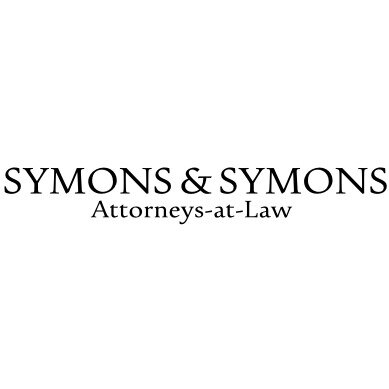Best Corporate Governance Lawyers in Cayman Islands
Share your needs with us, get contacted by law firms.
Free. Takes 2 min.
Or refine your search by selecting a city:
List of the best lawyers in Cayman Islands
About Corporate Governance Law in Cayman Islands
Corporate governance in the Cayman Islands is the system by which companies and other business entities are directed and controlled. The jurisdiction is globally recognized for its strong yet flexible corporate structure, often chosen for establishing investment funds, private equity firms, and special purpose vehicles. Good corporate governance ensures that businesses operate in a transparent, fair, and accountable manner. While Cayman Islands law is rooted in English common law, it also incorporates specific statutes addressing the unique commercial landscape. Proper governance is key to building investor confidence and minimizing risk for stakeholders.
Why You May Need a Lawyer
Legal advice in corporate governance is crucial for maintaining compliance and protecting the interests of your company, investors, and shareholders. Common situations requiring legal assistance include:
- Establishing a new Cayman Islands entity and ensuring it meets all governance requirements. - Drafting or updating company constitutions, shareholder agreements, or board policies. - Navigating the duties and liabilities of directors and shareholders. - Responding to regulatory inquiries or investigations. - Addressing conflicts of interest or disputes among stakeholders. - Implementing anti-money laundering (AML), data protection, and economic substance compliance measures. - Managing mergers, acquisitions, and restructurings. - Handling issues related to dissolutions or liquidations. A lawyer well versed in Cayman Islands corporate governance can guide you through these scenarios while maintaining adherence to local laws and international standards.
Local Laws Overview
Several key statutes and regulations govern corporate governance in the Cayman Islands. The most relevant include:
- Companies Act (2023 Revision): The primary statute for company formation, directors' powers and duties, shareholder rights, and reporting requirements. - Limited Liability Companies Act: Governs the formation and management of LLCs, offering flexibility similar to US-style limited liability companies. - Partnerships Act: Covers general and exempted limited partnerships, common for investment funds. - Directors Registration and Licensing Law: Regulates the registration and licensing of directors of certain regulated entities. - Anti-Money Laundering Regulations: Imposes strict obligations on company governance and compliance to prevent financial crime. - Data Protection Act: Requires proper handling and safeguarding of personal data by organizations. - Economic Substance Act: Mandates that certain entities have adequate local presence and management to prevent abuse of the Cayman Islands tax framework. Corporate entities must also adhere to common law duties of good faith, skill, and care. Directors have a primary responsibility to act in the best interests of the company, making independent and informed decisions.
Frequently Asked Questions
What is the role of a director in a Cayman Islands company?
Directors are responsible for managing the company's affairs, ensuring compliance with laws and company policies, and acting in the best interests of the company and its shareholders.
Are there local residency requirements for directors?
Most Cayman Islands companies, including exempted companies, do not require directors or officers to be residents. However, economic substance and regulatory obligations may necessitate certain local presence or management structures.
What corporate governance documents are typically needed?
Key documents include the memorandum and articles of association, board resolutions, shareholders' agreements, registers of directors and members, and minutes of meetings.
Do Cayman companies have to hold annual general meetings?
Cayman Islands exempted companies are not required by law to hold annual general meetings unless mandated by their articles of association.
How are shareholder rights protected?
Shareholders have rights as set out in the company’s governing documents and Cayman Islands law, including rights to vote, receive information, inspect records, and receive dividends if declared.
What are the main risks of poor corporate governance?
Risks include regulatory penalties, legal disputes, loss of investor confidence, reputational damage, and personal liability for directors and officers.
Is there a requirement to file financial statements with the government?
Generally, Cayman Islands companies are not required to publicly file financial statements, though regulated entities such as investment funds and banks are subject to more stringent reporting standards.
What anti-money laundering obligations do companies have?
Companies must maintain appropriate policies, controls, and procedures to prevent and report money laundering and terrorist financing, including customer due diligence and ongoing monitoring.
How does the Economic Substance Act affect corporate governance?
Entities engaging in certain relevant activities must have adequate local substance, including presence of qualified staff, expenditure, and board meetings in the Cayman Islands. Non-compliance can result in penalties.
How can disputes between shareholders or directors be resolved?
Disputes are usually resolved in accordance with the articles of association or shareholder agreements, and if necessary, through mediation, arbitration, or the courts in the Cayman Islands.
Additional Resources
The following resources and organizations can provide helpful information or support related to corporate governance in the Cayman Islands:
- Cayman Islands Monetary Authority (CIMA): The chief financial services regulator, providing guidance on regulatory compliance and governance. - Cayman Islands Government General Registry: Responsible for registering companies and partnerships and providing public records. - Ministry of Financial Services and Commerce: Offers updates on legislation and international compliance standards. - Cayman Islands Legal Practitioners Association: Represents qualified lawyers and offers directories. - Independent Corporate Service Providers: Many professional firms offer compliance, directorship, and governance advice.
Next Steps
If you need legal assistance regarding corporate governance in the Cayman Islands:
- Identify the specific issue or compliance requirement you are facing. - Gather any relevant documents, such as your company’s constitutional documents or recent correspondence. - Contact a Cayman Islands law firm or corporate governance specialist with expertise in local regulations. - Be ready to discuss your business structure, objectives, and any concerns or questions. - Follow your lawyer’s advice on implementing or updating governance frameworks, managing risks, and addressing regulatory requirements. Acting proactively by seeking professional guidance will help you maintain good standing, reduce risk, and promote the long-term success of your business.
Lawzana helps you find the best lawyers and law firms in Cayman Islands through a curated and pre-screened list of qualified legal professionals. Our platform offers rankings and detailed profiles of attorneys and law firms, allowing you to compare based on practice areas, including Corporate Governance, experience, and client feedback.
Each profile includes a description of the firm's areas of practice, client reviews, team members and partners, year of establishment, spoken languages, office locations, contact information, social media presence, and any published articles or resources. Most firms on our platform speak English and are experienced in both local and international legal matters.
Get a quote from top-rated law firms in Cayman Islands — quickly, securely, and without unnecessary hassle.
Disclaimer:
The information provided on this page is for general informational purposes only and does not constitute legal advice. While we strive to ensure the accuracy and relevance of the content, legal information may change over time, and interpretations of the law can vary. You should always consult with a qualified legal professional for advice specific to your situation.
We disclaim all liability for actions taken or not taken based on the content of this page. If you believe any information is incorrect or outdated, please contact us, and we will review and update it where appropriate.
Browse corporate governance law firms by city in Cayman Islands
Refine your search by selecting a city.

















